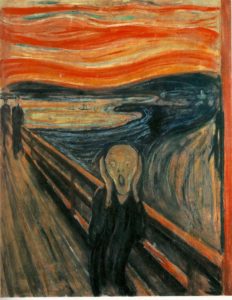 This intense psalm describes a state of frightening loneliness, of abandonment, of God’s face hiding, and of the psalmist’s sense of being a worm rather than human.
This intense psalm describes a state of frightening loneliness, of abandonment, of God’s face hiding, and of the psalmist’s sense of being a worm rather than human.
The metaphor of a worm is striking and unique, precisely because it is so rarely used: it appears only twice, in this psalm and in Isaiah’s prophecy (44).
The Psalm begins with a piercing cry, “Eli, Eli, My God, My God, why have You abandoned me”; a scream of existential loneliness of the psalmist, “You are my God, no one but You has ever been my God, why have You deserted me now?!.” The cry is about a double separation: the spatial distance from God – “until You will not be close to me to be my salvation in times of need,” and the emotional remoteness – “until You cannot even hear my roaring,” and despite my loud cry that can be heard afar, “You would know nothing of my troubles”—abandonment as well as hiding God’s face (Malbim). All these become a daily unbearable pain, “ in the morning I call and you do not respond, and at night I have no respite.” read more



